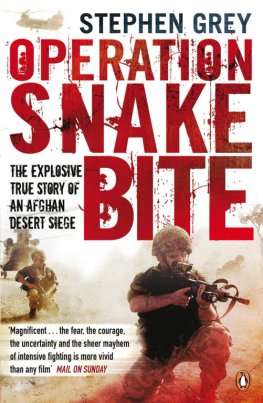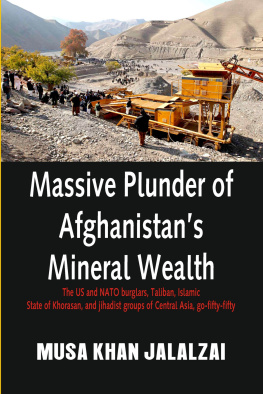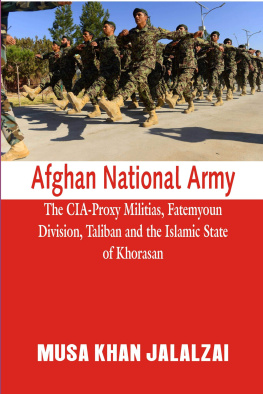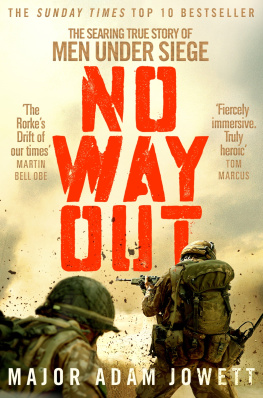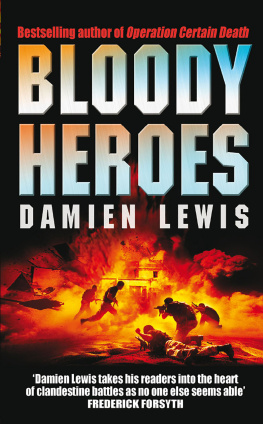Into the Vipers Nest
The First Pivotal Battle of the Afghan War
Stephen Grey

To the fallen, of every nationality and creed.
Both the American and the British forces
guaranteed to me they knew what they were doing,
and I made the mistake of listening to them.
And when they came in, the Taliban came.
Hamid Karzai, president of Afghanistan
Authors Note
War is organized chaos. It involves men and women who have to make decisions about the lives of others under conditions of great stress. What follows is neither an official nor a comprehensive or definitive account of the war in Afghanistan. It is an attempt to look in detail at one small snapshot of a modern counterinsurgency action through the eyes and ears of a few key individuals, both in command and on the front line. It seeks to try to understand what it meant for those involved, to provide an insight into the decisive factors at work, and so to allow readers to form their own provisional judgment on the events taking place and some lessons that might be learned. The consequences of much that happened are still to play out, and I have not sought to draw any hard conclusions. My only hope is that all of usmyself, readers, and decision-makersmay be better informed about the reality of a twenty-first-century war.
Conversations reported here or thoughts attributed to individuals are based on the recollections of one or other of the parties involved, of those briefed on conversations shortly after they took place, or of those with access to the records of conversations. Some parties will remember what happened differently, and some of what they said at certain moments may not reflect their complete view or, unless stated, their settled view in hindsight. The intention is not to convey the exact words or attribute responsibility to any person but rather to give an impression of what it felt like to be part of these intense and momentous times.
Any political views expressed by individuals represent their personal impressions. None should be taken to represent the official view of the United States Army, the U.K.s Ministry of Defence, the Afghan government, or any of the other agencies mentioned.
I am happy to correct any errors in future editions of the book.
Principal Characters
Afghan
Hamid Karzai is the president of the Islamic Republic of Afghanistan and has ruled the country since 2001.
Asadullah Wafa is the governor of Helmand.
Mullah Muhammad Omar is the supreme leader of the rebel Taliban movement and is in hiding with a $10 million bounty on his head.
Mullah Abdul Salaam, of the Alizai tribe (Pirzai subtribe), is described by intelligence as a Taliban commander in the Musa Qala district of Helmand.
Mullah Sadiq is the Taliban commander for the Kajaki front line and lives with his family in the town of Sangin.
American
General Dan K. McNeill is commander of the International Security Assistance Force of NATO in Afghanistan and is known as COMISAF.
Lieutenant Colonel Brian Mennes is the commander of Task Force 1 Fury, an Afghanistan-wide reserve strike force formed from the 1st Battalion, 508th Parachute Infantry Regiment, 82nd Airborne Division. He and his wife are from Buffalo, New York.
Sergeant First Class James Brasher, from Albuquerque, New Mexico, is a twenty-eight-year-old platoon sergeant with 1 Furys 2nd Platoon, Alpha Company.
Sergeant First Class Ronald Strickland, a thirty-three-year-old from Pembroke, North Carolina, was with 1 Furys Delta Company and later became a platoon sergeant of 3rd Platoon, Alpha Company.
British
Brigadier Andrew Mackay is a one-star general commanding both the multinational Task Force Helmand and, as Commander of British Forces (COMBRITFOR), all British service personnel in Afghanistan.
Sir Sherard Cowper-Coles is a career diplomat who is the British ambassador to Afghanistan.
Major Jason Alexis Jake Little commands an infantry unitB Company, 2nd Battalion, the Yorkshire Regimentdeployed to mentor the Afghan National Army.
Sergeant Lee Jonno Johnson is a platoon sergeant with B Company.
Irish
Michael Semple is a deputy European Union representative to Afghanistan.
Prologue: The Eyewitness
Only thing I can tell you that might actually do you some good is to go back to your room and practice hitting the floor for a while.
Dana Stone, war photographer, Saigon, to a rookie reporter
In the blur of combat, there is so much you see so clearly and there is so much that lies hidden so that there is little chance of understanding what is happening around you. Then you move on, and more events consume you. There is no time for real reflectioneven if in the busiest, most franticly crazy moment of your life there is sometimes an intensity of thought or a brief vision of some far-off place that suddenly distracts you, often with no relevance at all to the moment. Then afterward, the mantra of the army is crack on. Put feelings to one side, for now.
Only later, much later, does the fog lift, allowing the pieces to fall into place. Everything starts to make sense. In your head you construct a picture of what really happenedpartly from your own memories and partly from the tales of others who were there. Now, you have a picture that stays with you. Even so, it is only one reality. A nagging doubt may plague you by day or in your dreams. Was it really like that?
On 6 December 2007, I was in the desert of Afghanistan, lying under the stars. Of all the places in the world, I would have been in no other. Nowhere could have seemed more serene. That night was cold, moonless, and dark, and I doubted that I would sleep. I wasnt sure that I wanted to. Under my back was hard earth. The wind cut through my down sleeping bag and thin bivvy bag. I drew the strings at the top of my bag tight so I could only stare skyward through a narrow slit. Every so often I wondered if I should dig out another layer of clothes to wear. But I couldnt face the cold of the night to get up and find them. So I just lay there, shivering gently.
Just looking to the timeless heavens, I could forget for a moment why I was there. I could imagine how many countless otherswhether shepherds or soldierswere at this moment doing as I was and staring at the same Milky Way. But all these dreamlike thoughts were only to escape. If I peered closely, I could see the stars did not only twinkle. Some were also moving. The slow track of airplanes or satellites. And if I listened I could hear the rumble of truck engines and Afghan music and laughter inside their heated cabs. There were snores, too, and the crackle and whispers of the radio operators on duty.
These were the noises of a leaguer, a term for the temporary camp of a besieging army. We had arrived in a 12-mile-long convoy, tracked everywhere by the Taliban.
I was alone that night only in my thoughts. Tomorrows dawn light would sketch out on the desert plain an encampment of men preparing for war. I was among thousands of men there that night who were one prong in the biggest maneuver led by the British army in Afghanistan since the days of the long-gone Empire. Its purpose was to support an attack on a town called Musa Qala, a town now infamous as a rebel stronghold.
That night, like generations of men before me, I wondered how, if it really came to it, I would react to extreme danger. As a reporter for twenty years, I had been on this edge before, staring at the sky and surrounded by the snores of men who would wake up and be prepared to kill. But always the tension had faded away. I had been arrested at gunpoint, seen bombs and mortars explode, seen the burning homes of ethnic cleansing and charred remains of the victims of massacres. I had met bad men all over the world, had friends who had been kidnapped and held hostage and had felt very afraid. Sometimes, though, I felt like a mere observer in some surreal scene which had no impact on me or posed no threat to me. What would I do if I came under direct fire myself?


